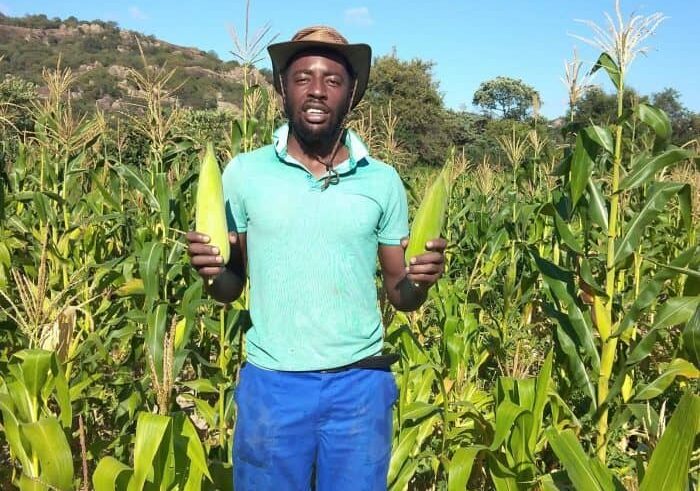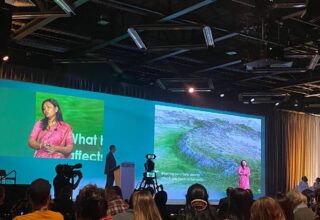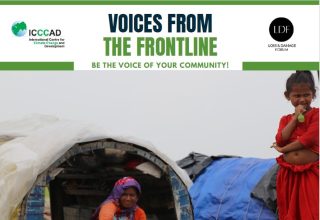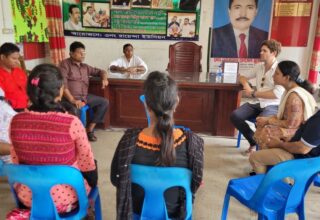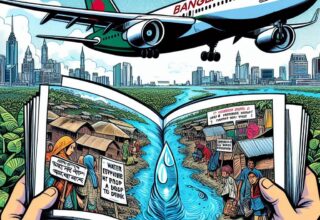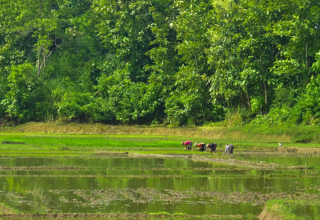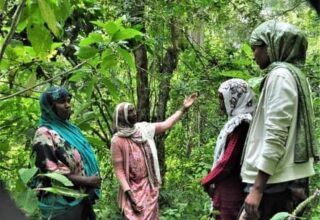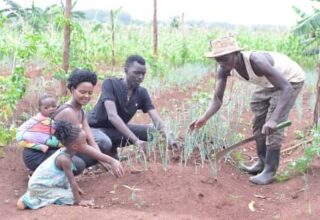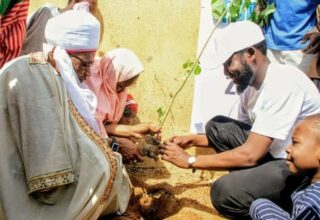Smallholder farmers in the Umzingwane district from the southern part of Zimbabwe are taking up locally-led initiatives and indigenous knowledge to adapt to unpredictable climate patterns. This is the eleventh of the ‘Voices from the Frontline (Phase-II)’ stories by ICCCAD and GRP.
Zimbabwe is highly vulnerable to climate change impacts. Erratic and unpredictable rainfall patterns affect livelihoods of many families, particularly rural households who rely on agriculture as primary source of income, due to the country’s heavy reliance on rain-fed agriculture. Smallholder farmers, particularly, in the southern part of Zimbabwe, are some of the most heavily affected by climate induced droughts and prolonged dry spells. The government, civil society organizations and other interested parties have made efforts to ensure climate resilience and adaptive ability at the local level is strengthened. These efforts include use of scientific knowledge and technical know-how.
Climate Change Impacts on Umzingwane and its Farming Community
Umzingwane district in southern Zimbabwe is a rocky region characterized by gully erosion which is form of soil erosion caused by flow of water across unprotected land. There is significant deforestation in some areas exposing the soil to the elements which can cause erosion. With less than 450 mm of rainfall per year, longer and more frequent dry periods are another impact of climate change exacerbating the region’s susceptibility to droughts.
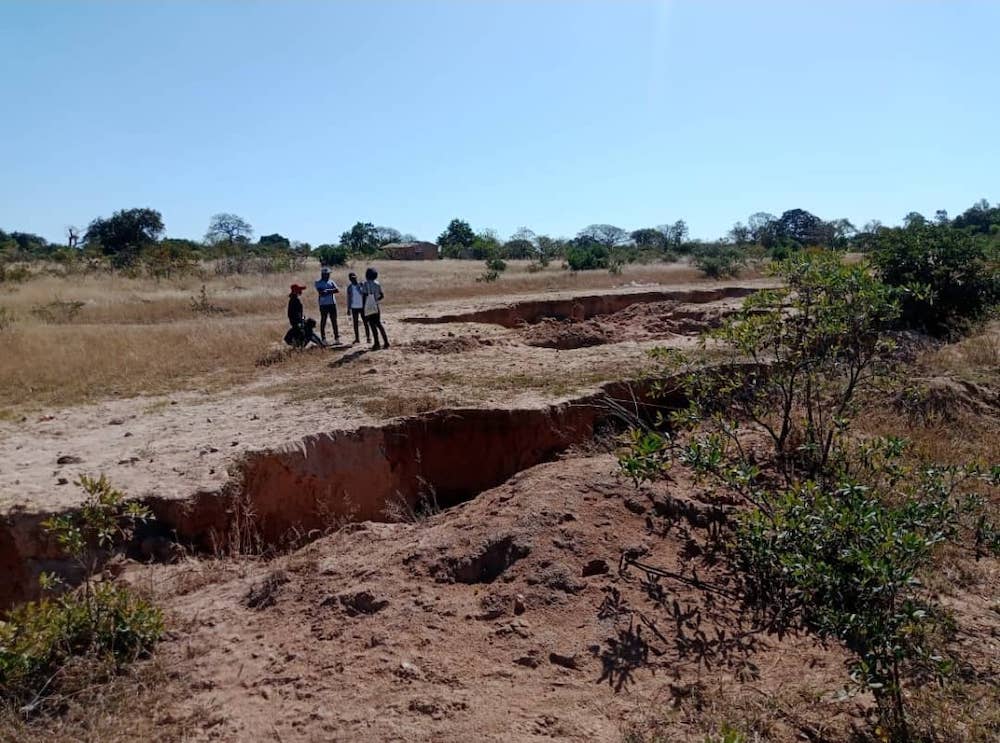
The predominant activities in the area includes fishing, vending, artisanal mining, dry land agriculture, animal farming, and vending. Major dams and rivers are silting up due unsustainable harvesting of natural resources like gold mines and veld which are natural grasslands providing not only food, but also shelter and nesting material for animals. Water-holding capacity is getting reduced due to artisanal mining deposits while Animals traveling longer distances in search of veld is another sign of overgrazing and indiscriminate deforestation.
Smallholder farmers in the district have lost crop yields and livestock to longer dry periods, causing food insecurity. The 2017 district risk profile carried out by the Government of Zimbabwe identified that the district is prone to higher food insecurity than the national average.
Access to Meteorological Data
For smallholder farmers, access to systematic observation data to plan their agricultural activities is crucial. Efforts to enable farmers to make correct decisions related to their agricultural activities include weather information being provided to them from weather stations through agricultural extension staff and updates on meteorological forecasts.
Born and raised in Umzingwane District, Merilyn Nkomo is now a widow surviving on farming. She has lived in the region for 51 years and has seen the climate and ecosystem health in the district decline, more so the in the recent decades due to increased climate variability.
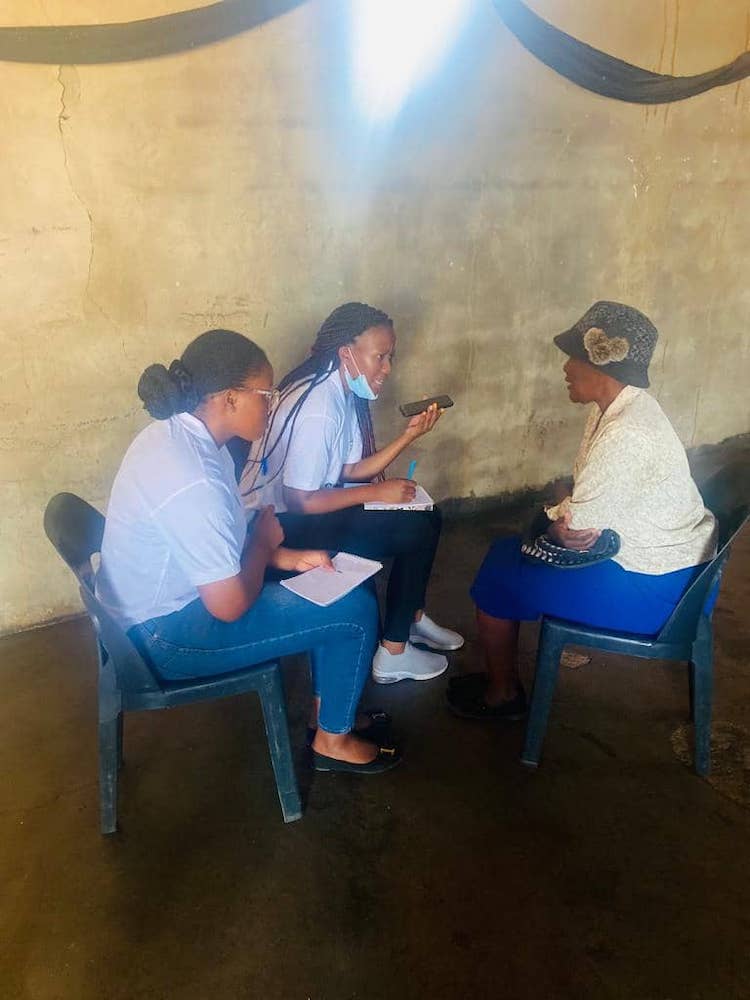
Merilyn, together with the other smallholder farmers in Umzingwane district hold regular meetups at the local dairy market with extension officers to share updates on weather forecasts from weather stations, which are vital in planning for agricultural activities. However, this information is not always found to be accurate because of wide geographical coverage of a single weather station located tens of kilometers away from smallholder farmers in rural districts. Smallholder farmers also struggle to access meteorological data in remote areas, because they can barely access radio frequencies. The stations often relay seasonal forecast data with little time in hand for the smallholders to make informed farming decisions. This data is usually relayed through farmers’ whatsapp groups for smartphone users or radio programmes.
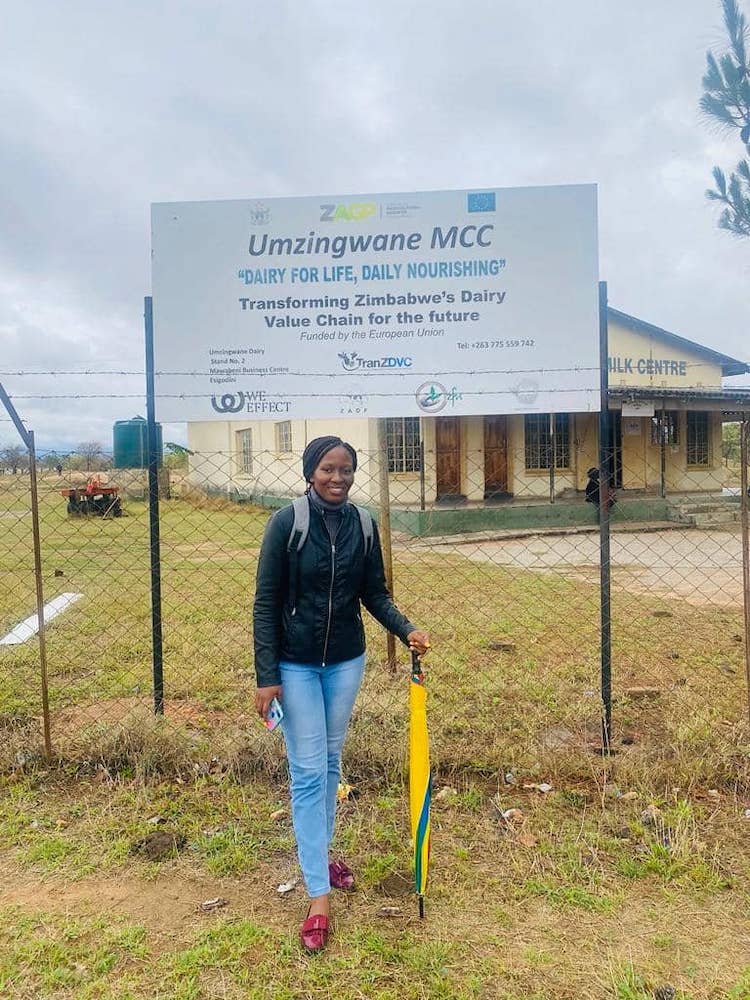
Several organizations come to the community with agricultural inputs in the form of seeds and fertilizers to help increase crop yields. Some of the seeds are said to be drought resistant. Farmers are not enthusiastic about such donations as they are often inconsiderate of the local climatic conditions. Maize seeds, for example, despite being cited unideal by the agroecological classification of the district, remains one of the majorly donated items received by the farmers every year.
Locally Led Adaptation Initiatives
Smallholder farmers in Umzingwane District have been using indigenous knowledge, passed on from one generation to the next mainly through word of mouth, in addition to meteorological data for better informed agricultural activities. Signs from nature, such as blooming of a particular tree species or keeping an eye out for certain types of birds in the area, are used to predict the start of the rainy season. Despite some mixed feelings about this approach, the majority of the smallholder farmers in Umzingwane District continue to use this indigenous knowledge in conjunction with meteorological information to aid their planning.
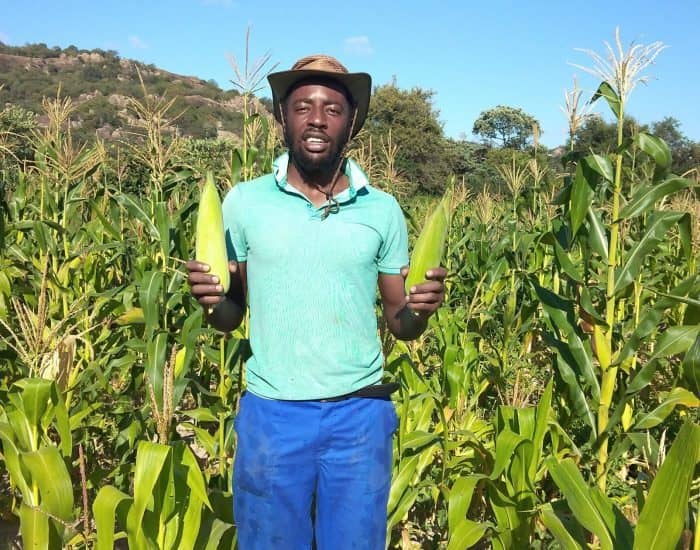
The smallholder farmers are not only using indigenous knowledge, but also moving towards adopting production of indigenous crops. Instead of solely relying on commercial hybrid seeds variants, more farmers in the region are moving from producing conventional staple crop maize to small traditional grains such as sorghum and finger millet. These small grains are indigenous to Zimbabwe and best suited for drought-prone areas as they require less rainfall

The farmers are practicing conservation agriculture through extension services to maximize their yields and conserve the environment. This practice is not only helping the farmers adapt to the unpredictable rainfall pattern but also helps prevent soil disturbance through minimum tillage and use of organic fertilizers such as cow dung and crop residue from previous harvest. This allows farmers to save their money and not spend it on expensive seed variants or large amounts of chemical fertilizers to sustain their crops.
In the community local farmer groups, the older generation shares their knowledge with the younger generation. The older generation like Merilyn hopes to impart these traditions on the younger generation who can practice them and keep them alive.
Persisting Challenges
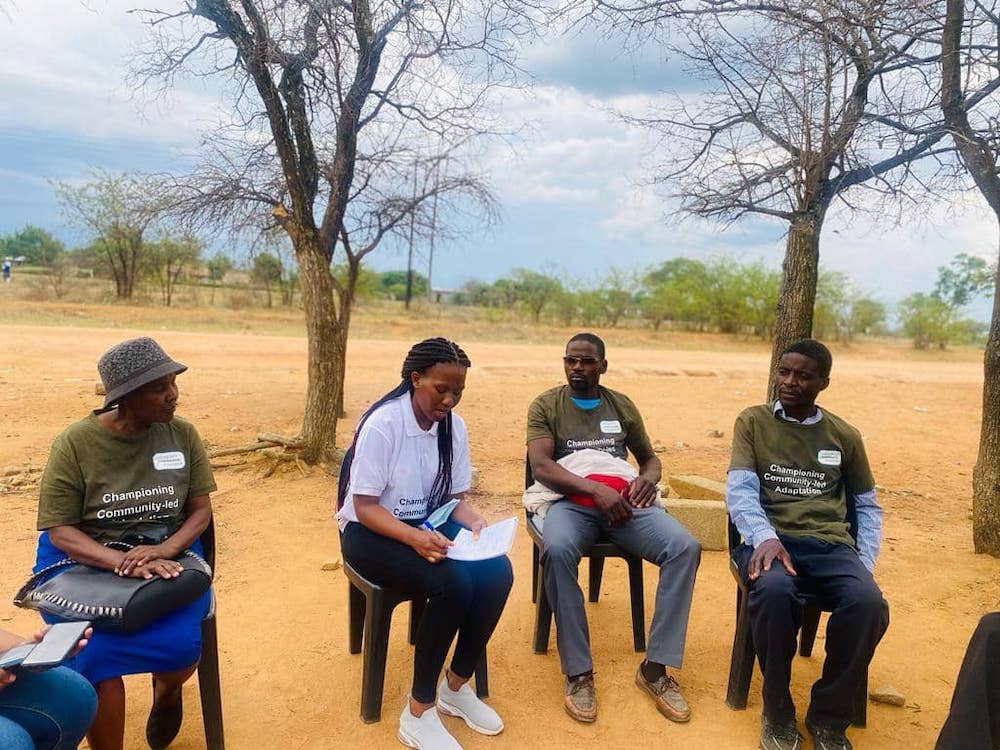
Despite the success of indigenous knowledge, there is a high likelihood of the practice becoming obscure because most of the knowledge is undocumented. Therefore, it is crucial that local scholars chronicle the many different local indigenous knowledge systems and how farmers are exploiting them for climate change adaptation.
For local farmers, meteorological data is another effective tool, however due to a lack of more weather stations, more specific data cannot be relayed, making it imperative to build additional weather stations.
Smallholder farmers in the district have been storing native seeds in their homes for planting. More research on indigenous seed variants will help create more regional indigenous seed variants that can flourish in the challenging, dry climate.
The majority of the agricultural programs funded by the donor community typically give smallholder farmers seeds without taking climate change into account. They encourage cultivation of the same crop that has repeatedly failed. This can compromise the environmental integrity, which could make local farmers more susceptible to the effects of drought.
Addressing these challenges would help ensure that smallholder farmers in the region are empowered through utilizing locally-led initiatives and indigenous knowledge.
Interviewers perspective
Climate change is severely impacting the lives of smallholder farmers in Umzingwane District. The recurring droughts have disrupted their agricultural activities which is the core livelihood activity for many. Additionally, the ongoing environmental degradation from mining activities, deforestation and overgrazing has significantly affected the natural ecosystem thus also having an impact on some of the signs from nature that indigenous knowledge relies on. The reduction of certain tree species in the area over the years due to deforestation has been noticeable and could also affect the reliability of some of the indigenous knowledge in use. There is a need for the integration of this local knowledge with systematic observation data from weather stations to ensure that local farmers get as much information they need to plan for their agricultural activities. With a significant shortage in weather stations to provide accurate information at District level and the delays in the distribution and communication of the information, local smallholder farmers can still turn to the knowledge they have always used for decades to assist them. Indigenous knowledge should be documented to preserve the knowledge and open up further possibilities of investigating its origins and efficacy in different communities across the country. By documenting and sharing indigenous knowledge, more small holder farmers may begin to cultivate more indigenous grains which have been noted to be relatively more labor intensive.
About the interviewer
Cinderella Ndlovu is the Founder and Executive Director of a non-profit environmental organization known as Green Hut Trust which is based in Zimbabwe, Bulawayo. She is a 2022 ICCCAD Catalytic Grant winner. She is an environmental scientist who is a trained Greenhouse Gas Inventory expert and a COP negotiator for Zimbabwe on transparency issues.

